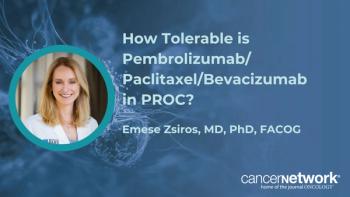
Who gets genetic screening for cancer: One payer wants to know
Aetna is examining data from 13,000 of its members to determine if patients who should be getting breast-and-ovarian cancer screening tests are in fact being offered them.
Aetna is examining data from 13,000 of its members to determine if patients who should be getting breast-and-ovarian cancer screening tests are in fact being offered them.
Is it prime time for genetic testing? A few caveats exist. For one, each test cost approximately
According to NCI, “Few data exist on the outcomes of interventions to reduce risk in people with a genetic susceptibility to breast or ovarian cancer. As a result, recommendations for management are primarily based on expert opinion. In addition, uncertainty is often considerable regarding the level of cancer risk associated with a positive family history or genetic test. In this setting, personal preferences are likely to be an important factor in patients’ decisions about risk reduction strategies.”
Moreover, some patients are concerned about possible discrimination by insurers or employers regarding BRCA test¬ing and thus may fear being tested. A study of women [Armstrong K, Weber B, FitzGerald G, et al. Life insurance and breast cancer risk as¬sessment: adverse selection, genetic testing deci¬sions, and discrimination. Am J Med Genet A 2003;120:359–364] undergoing genetic counseling and/or testing for breast cancer found that fear of life insurance discrimination was negatively corre¬lated with a decision to proceed with BRCA testing. However, to date, no evidence of insurance discrimination has been documented. Patients’ fears about such issues usually far ex¬ceed any real discrimination.
But Aetna says there are questions about whether women most at risk are getting the tests, and whether there are socioeconomic and racial disparities in their use. There’s some evidence, like this study by the
The company’s
In a statement, Anne Beal, president of the Aetna Foundation, an independent charitable arm of the insurer said: “There is valid concern that some women are receiving this test unnecessarily, while others, particularly among racial and ethnic minorities, as well as poorer women, should be receiving these critical tests and are not. This study may validate the need for specific strategies to eliminate barriers to these tests--whether they are knowledge-based, culturally-based, or access-based--and help improve the health outcomes among high-risk poor or minority women.”
Newsletter
Stay up to date on recent advances in the multidisciplinary approach to cancer.



















































